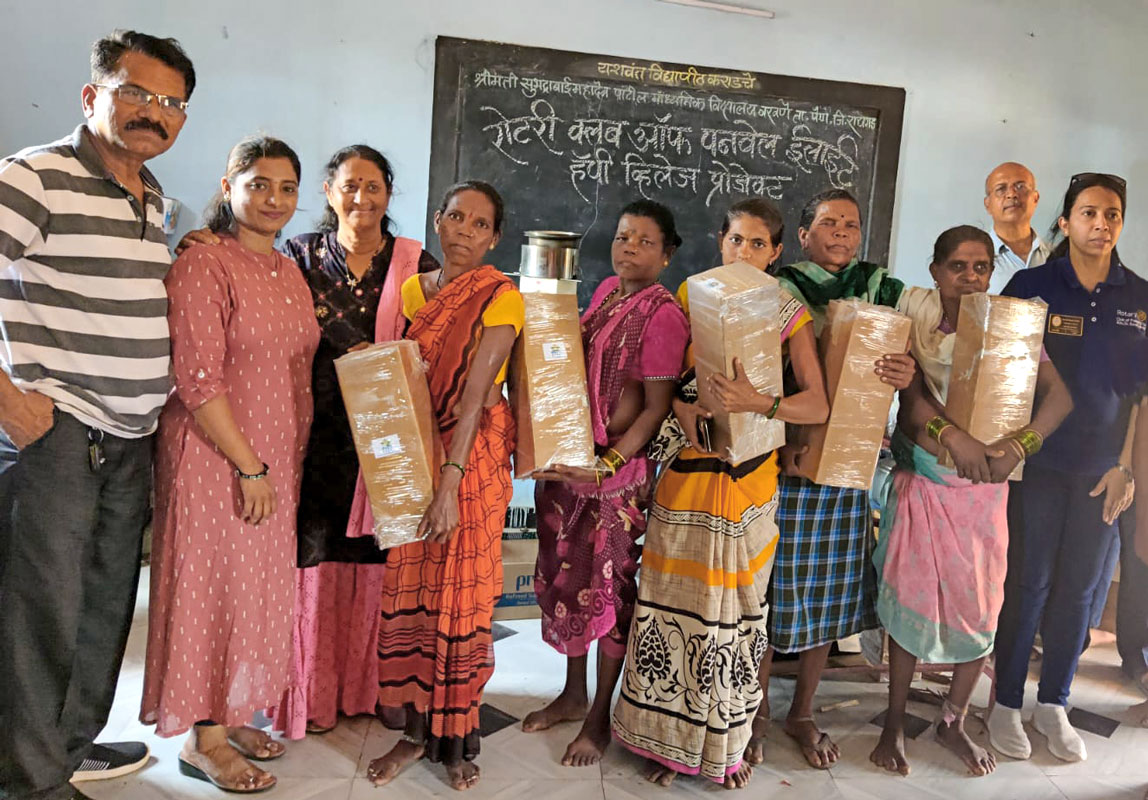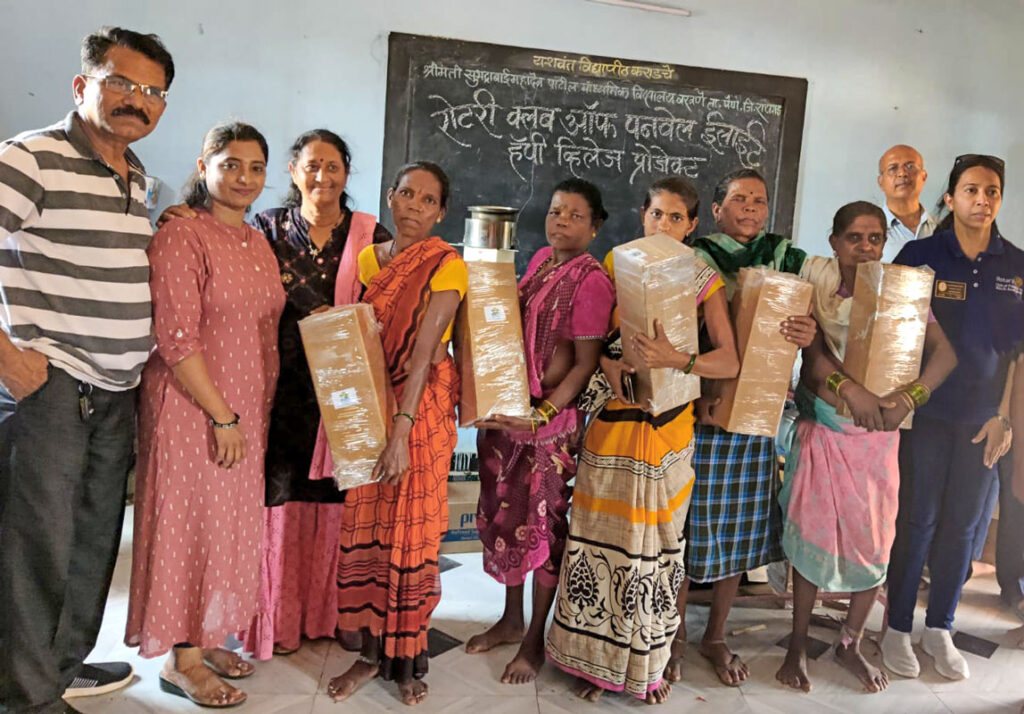
Rotary Club of Panvel Elite, RID 3131, has embarked on a transformative mission to distribute unique smokeless stoves to ten Adivasi families in the hill village Varavane, near Panvel, Maharashtra. These stoves, called Panval Rocket Stoves (PRS), use twigs instead of wood to burn, and cook food in record time. “PDG Deepak Shikarpur introduced this model to us and we found it a perfect solution to save trees which were being felled indiscriminately for wood to be used in the traditional chulhaas,” says club president Swati Likhite.
Six women from the club, along with technicians from Applinnova, the stove manufacturers, visited the village to demonstrate its working to 50 women assembled in a school. The technicians gathered a few fallen twigs from under a Gulmohar tree in the school campus, assembled the stove, and lit it up with the twigs. “The audience was impressed with the entire process and was awed to see how rice, sufficient for six people, was cooked in just 15 minutes. The best part, they commented, was the absence of the stiffling smoke,” smiles Swati.
The club had undertaken this eco-friendly project on a pilot basis, but “we were surprised to be flooded with requests from other families too. However, we want to assess its success in the village before moving on to the next phase.” The stoves have earlier been distributed to households by Rotary clubs in Uttarakhand and Hubli, “and we have received positive feedback about their impact and sustainability from the clubs there.” Each stove which originally costs Rs 3,080 was procured at Rs 2,500. It takes 21 days to manufacture each lot, she adds. The technicians from the company trained three youngsters to troubleshoot and maintain the stoves.
Roshan, a young villager, recalls his childhood memories of a hillock behind the school. “The winding paths of the hill were then lined with huge trees. But as I grew older, I could see how they were all cut down gradually for firewood. Today it is just another barren land.” He points out to the logs of wood each house has stacked up in its rickety shed to be used during the monsoon. “Imagine the number of trees that have been hacked to build the pile,” he adds.
The Rotarians explained to the villagers how detrimental to the lungs it is to inhale the smoke from traditional chulhaas. The smokeless stoves fuelled by twigs would warm hearts and homes without the toxic haze of smoke, and is an ingenious solution to effective environment care, says Swati. n
About the stove
The stove works on ‘rocket stove’ principle which uses thin twigs that are burned in a simple combustion chamber containing an insulated vertical chimney, ensuring complete combustion before the flames reach the cooking surface. Here are a few features of the Panval Rocket Stove as mentioned in the manufacturer’s website: applinnova.com
The PRS-v5 is a smoke-free, economical biomass stove that can cook meals for 5–6 people using fallen twigs from trees. It can be ignited easily using few dry grass, leaves or paper as tinder and does not require an air-blowing or kerosene like traditional stoves.
It can make 20 cups of tea in 15 minutes using about 6–8 twigs (approximately 150gm of wood), cook 1kg rice with 8–10 twigs and 10 rotis in 30 minutes using 12–15 twigs.
The tall body of the stove acts like a chimney and creates a strong natural draught of air flowing through the stove to make it work almost smokeless throughout its operating power range.
Ash can be flushed out without extinguishing the fire or halting cooking operation. This can be done by simply pulling out the fuel grate while holding the burning sticks in place. Such mid-operation ash-disposal permits uninterrupted cooking for as long as needed.
The stove can be assembled easily, is portable and can be used as a camping stove when going on a picnic.








